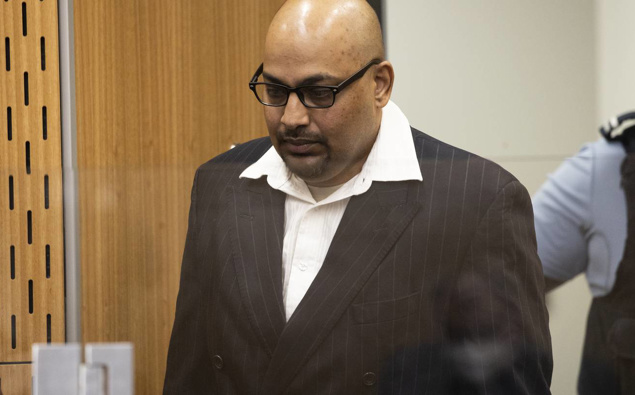A deserted husband who murdered his unfaithful wife’s new lover in a brutal hammer attack was driven by a deep shame and desperation, compounded by his Indian culture, a court heard yesterday.
Niraj Prasad’s wife’s infidelity was a direct attack on his “male ego and masculinity,” according to a culture report, which was used to try to reduce his prison sentence.
The 39-year-old accountant waited before killing Fiji-born Faiz Ali at his Christchurch home on February 21 last year.
Prasad was found guilty of murder in Christchurch High Court in March.
Judge Rob Osborne later sentenced him to life in prison with a minimum of 18.5 years without parole.
However, Prasad questions the length of his sentence before the Court of Appeal.
At a hearing in Christchurch this morning, his lawyer James Rapley KC argued that cultural factors were at play when Prasad reacted in such a vicious and violent manner and were “causal” to his brutal offence, but were not taken into account in his sentencing.
It’s a “slightly controversial subject,” Rapley said, but with care and sensitive thought, the issues raised in the culture report should be addressed because it helps explain Prasad’s extreme actions and, to some extent, mitigates his guilt.
Prasad had been in a relationship for around 18 years when he found out that his wife Nalini Roy – who had converted from Hindi to Christianity – had been having an affair for some time and didn’t want to be with him anymore.
Faiz Ali. Photo / Included
Ali suffered 38 wounds in the hammer and knife attack that caused “clearly visible catastrophic head injuries” and would have continued while he was defenseless, dying and perhaps even dead.
Two were stab wounds, but the remainder were blunt force injuries – allegedly from the hammer – which fractured his skull and jaw and fatally damaged his brain.
The culture report says Prasad was wracked with shame, hopelessness and a wasting despair.
His cultural beliefs placed the sanctity of marriage at the forefront of his entire world, the report said, and shame at his wife’s infidelity spread to include his entire family.
And while Rapley accepted that infidelity occurs in “all walks of life and cultures” and that nothing excuses Prasad from killing another man, the culture report helps explain his actions.
The report says there is “no doubt” that Prasad’s cultural background played a role in his response, Rapley said.
At today’s hearing, Court of Appeals Justices Christine French, Susan Thomas and Jillian Mallon appeared to struggle with the idea that shame could excuse such an aggressive, violent response.
“It’s one thing to be deeply ashamed and upset, but how does that translate to an extremely violent and brutal attack?” they asked.
The appeals judges also noted that violent murders by spurned lovers are not unique to any particular culture or background and that they can also be seen in “New Zealand European culture”.
Prosecutor Barnaby Hawes agreed, adding that shame and direct attacks on male ego and masculinity should not justify a reduced sentence.
Prasad also appeared to continue to blame his wife, Hawes said, the Culture Report noting that his deep love for her drove him to this stage.
The Chamber of the Court of Appeal reserves its decision.


Comments are closed.